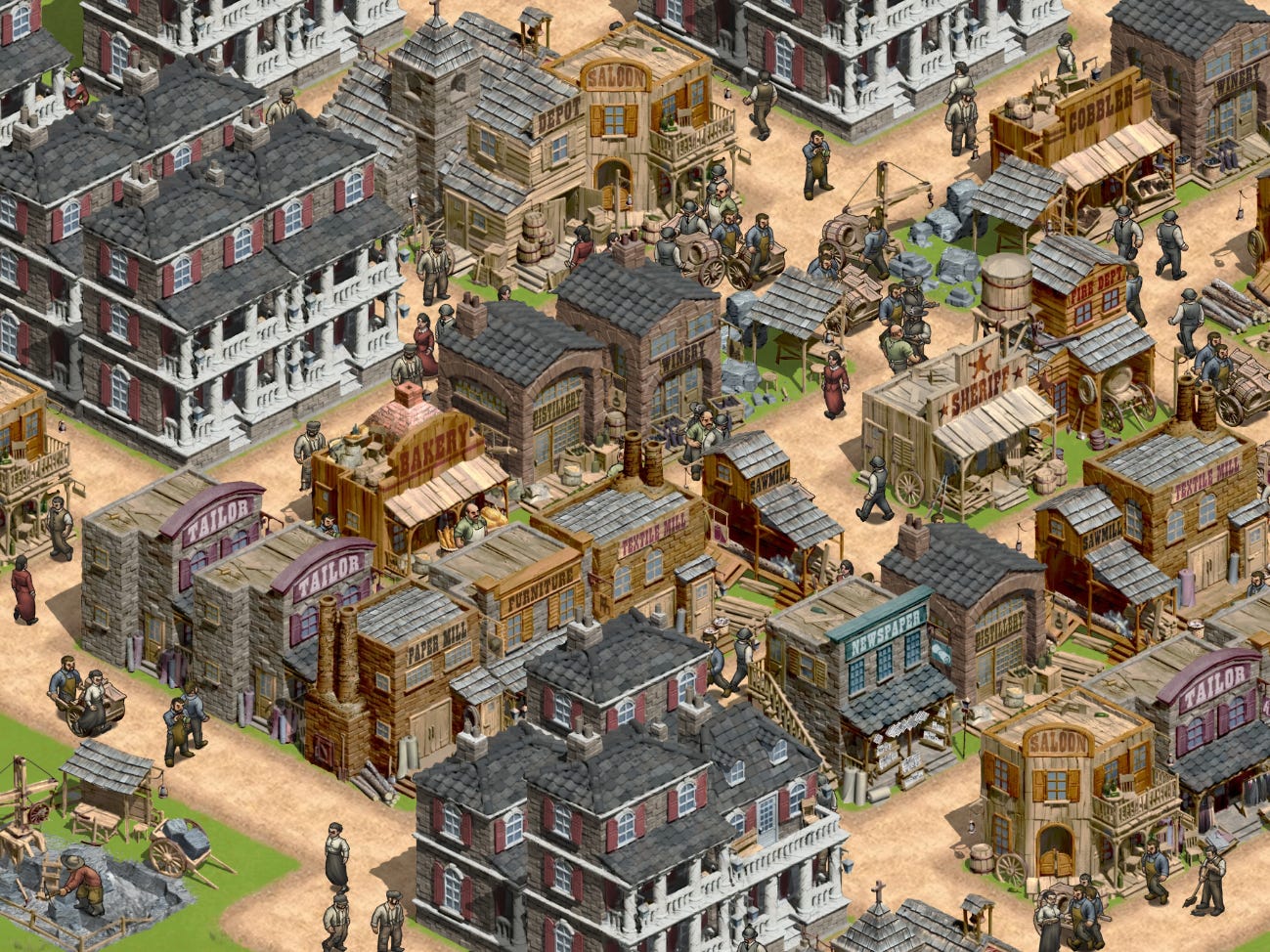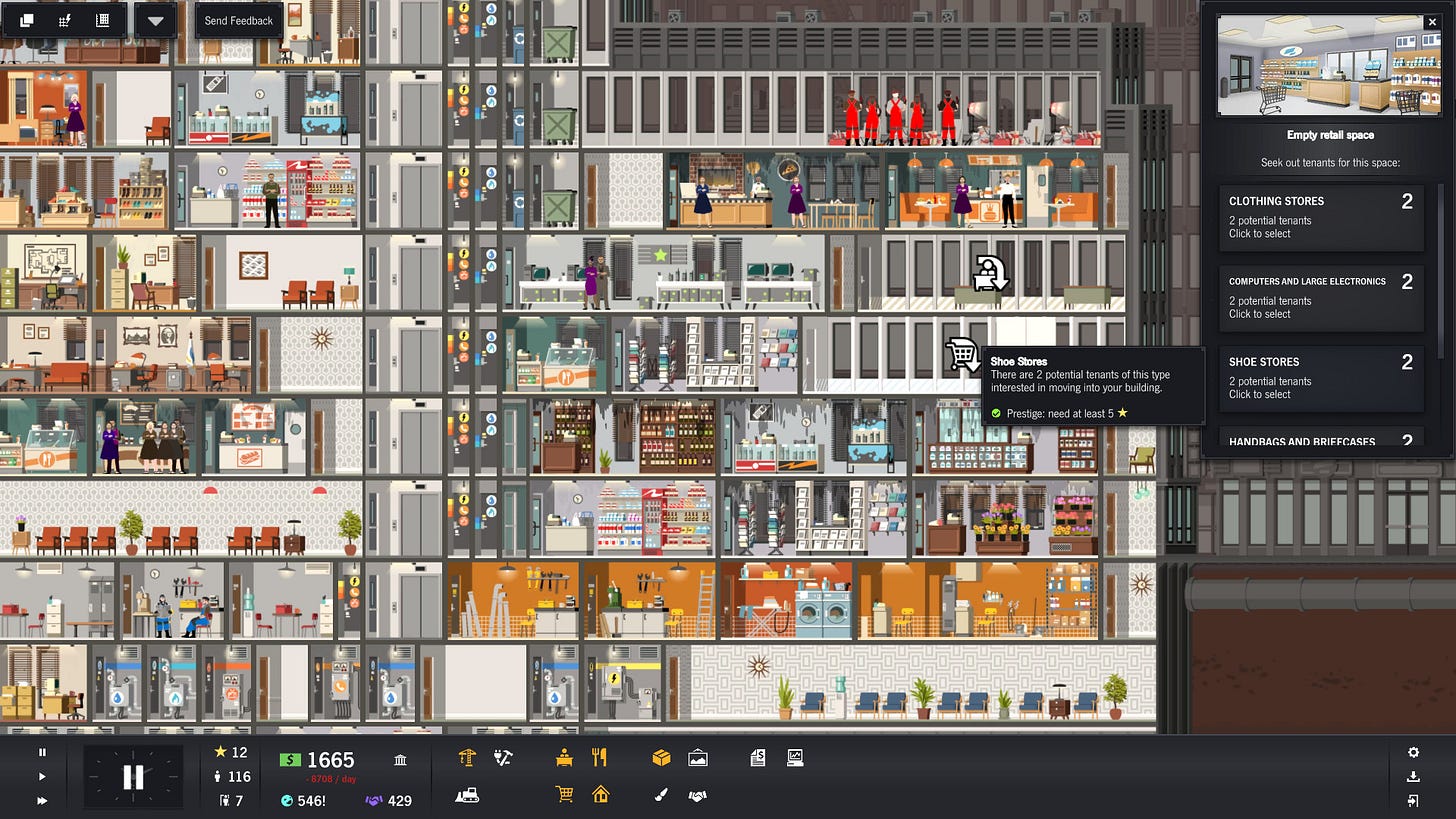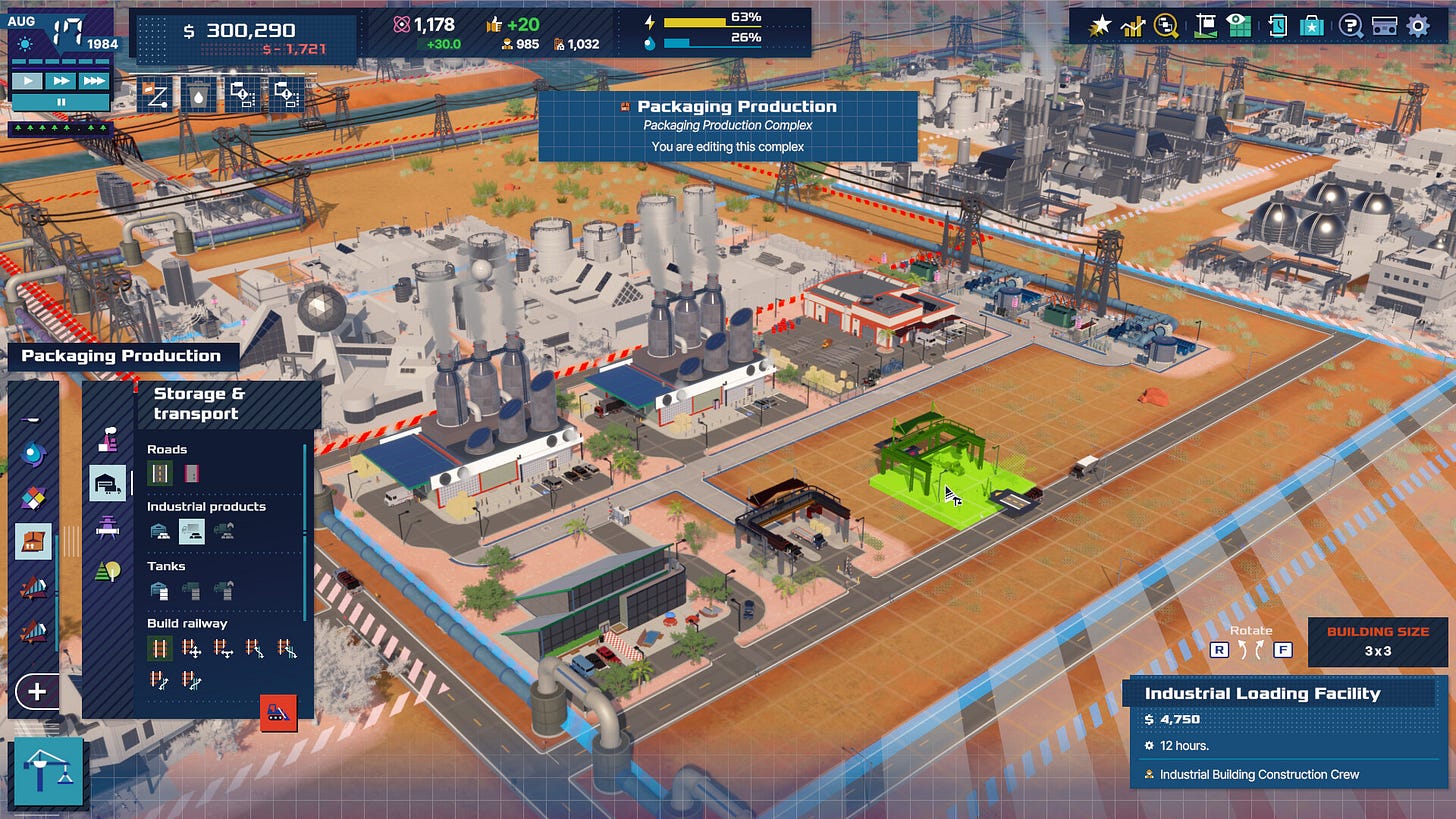SomaSim games figured out something early on in the lifecycle of Steam — PC gamers love strategy games.
While consoles have proven out a market for your run of the mill platformer, action game, or FPS, the allure of sitting in a room and just thinking about stuff on a screen, poking a little simulation, remains untouched by those who prefer an analog stick.
And the companies that give people new and different little ant farms tend to be the ones primed to reap major rewards. Games like Rimworld (one of the top selling games of all time on Steam), Prison Architect, Planet Coaster — these are games that provide people not only a fantasy of “control”, but truly deliver on the premise of a videogame as an interactive way to tell stories.
SomaSim, similarily, has been in the business of making little ant farms for gamers on Steam, and has been doing it now for nearly a decade.
Debuting long before Steam Greenlight was even a thing, their forst foray into the space was the Impressions-inspired city building game 1849, all about prospecting during a gold rush.
Following that up a few years later, they pulled on similar nostalgia (and dear to my heart) inspiration with their SimTower inspired game Project Highrise. The game is an absolute love letter to SimTower, and plays like you remember SimTower playing, but then goes above and beyond.
Follow that up a few years later with their combo social simulation/city simulation game City of Gangsters, and you can see there is a trend here. SomaSim knows a thing or two about simulation.
So obviously I wanted to talk to them here, and what better opporunity than on the eve of the launch of their new title, Rise of Industry 2 — a game all about putting together logistics pipelines and buildings to actually do some real “city building” in a city builder (instead of just plopping down buildings and zones).
Across a fair number of successful games of a similar genre, I knew there had to be some secret sauce to how they did things. Or at least some stories. And I’m happy to report that with this episode I did indeed unconver some interesting parts about how SomaSim makes games (custom data language, anyone?) that I think all you who enjoy Game Data will similarily enjoy.
So sit back, relax, and get ready to do a deep dive on programming simulation and strategy games (really, what else could you want?)













